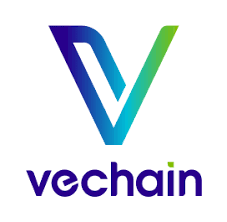As the crypto market matures, investors are increasingly prioritizing long-term value over short-term speculation. With thousands of digital assets available, selecting the best cryptocurrencies to hold for years can be challenging. In this article, we’ll discuss the top cryptocurrencies poised for long-term success and highlight the most promising assets to consider in 2025.
07 July, 2025
Table of content

Bitcoin is the first decentralized digital currency, launched in 2009. It operates on a peer-to-peer network without a central authority, using blockchain technology to record transactions transparently and securely. Bitcoin’s supply is limited to 21 million coins, creating scarcity and supporting its use as a store of value. Its network remains the most established in the cryptocurrency space, with broad adoption and support from individuals and institutions worldwide, making it a key consideration for long-term investors.

Ethereum is a decentralized blockchain platform launched in 2015 that enables developers to build and deploy smart contracts and decentralized applications (dApps). Unlike Bitcoin, which focuses on digital currency, Ethereum serves as a programmable blockchain powering a wide range of use cases such as decentralized finance (DeFi), non-fungible tokens (NFTs), and Web3 projects. Its transition to a proof-of-stake consensus mechanism has improved scalability and energy efficiency. Ethereum’s broad developer community and continuous innovation maintain its position as a leading platform, making it a critical asset for long-term crypto investors.

Solana is a high-performance blockchain platform designed for decentralized applications requiring fast, low-cost transactions. Launched in 2020, Solana uses a unique Proof of History (PoH) consensus combined with Proof of Stake (PoS) to achieve high throughput, processing thousands transactions per second. Its architecture supports scalable DeFi, NFTs, and Web3 projects, making it popular among developers. Solana emphasizes energy efficiency and decentralization, validated by thousands of independent nodes, contributing to its appeal as a long-term investment option.

Chainlink is a decentralized oracle network that securely connects smart contracts with real-world data, APIs, and external systems. It solves a crucial blockchain limitation by enabling smart contracts to access off-chain information, which is essential for many decentralized finance (DeFi) applications, tokenized assets, and cross-chain interoperability. Trusted by major financial institutions and DeFi protocols, Chainlink supports secure, scalable, and reliable onchain finance infrastructure. Its technology enables automation, compliance, and data delivery for a variety of industries, making it an important player in the blockchain ecosystem.

Arbitrum is a layer 2 scaling solution designed to improve Ethereum’s performance by increasing transaction speed and reducing fees. It uses optimistic rollup technology, which processes transactions off-chain and submits compressed data to Ethereum’s mainnet. This method maintains the security and decentralization of Ethereum while enabling faster and more cost-effective operations. Arbitrum supports decentralized applications (dApps), DeFi platforms, and NFTs, making it a key player in Ethereum’s scaling ecosystem. Its growing adoption is reflected in high total value locked and active wallet numbers, indicating strong community support and network activity.

TON (The Open Network) is a decentralized blockchain platform originally developed by the Telegram team. It focuses on high scalability and fast transaction speeds through a multichain architecture, enabling multiple blockchains to operate simultaneously. TON supports various applications including DeFi, NFTs, and decentralized storage. Its unique design combines proof-of-stake consensus with a dynamic sharding mechanism to maintain security while scaling efficiently. TON’s growing ecosystem aims to provide a user-friendly blockchain experience suitable for real-world adoption and mass usage.

Polkadot is a multi-chain blockchain platform designed to enable interoperability between different blockchains. It uses a unique relay chain to connect independent blockchains, known as parachains, allowing them to exchange data and assets securely. Governed by holders of the DOT token, Polkadot supports scalability, security, and upgradeability without hard forks. Its architecture allows developers to create custom blockchains optimized for specific applications, making it suitable for a wide range of use cases such as DeFi, gaming, and enterprise solutions.

Avalanche (AVAX) is a blockchain platform designed for high speed, scalability, and security. It uses a unique consensus protocol that finalizes transactions in under two seconds while supporting a network of customizable, interoperable blockchains. Avalanche enables developers to create decentralized applications and enterprise solutions with low fees and fast processing. Its ecosystem is built to scale horizontally, allowing multiple blockchains to interoperate seamlessly. This flexibility, combined with a growing community and strong developer tools, positions Avalanche as a significant long-term crypto investment option in 2025.

VeChain is a blockchain platform designed to improve supply chain management and business processes. It focuses on real-world applications by combining blockchain with IoT technology to provide transparent and secure data tracking. The VeChainThor blockchain supports scalable, fast, and affordable transactions with a sustainable approach. It enables enterprises to build blockchain-based solutions that increase efficiency and reduce fraud across industries like logistics, automotive, and retail. VeChain emphasizes Web3 integration and a circular economy model to create lasting business impact through its ecosystem.

ADA is the native cryptocurrency of the Cardano ecosystem, serving as a medium of exchange and a staking asset. It enables secure, low-cost transactions and supports a sustainable economy through an energy-efficient Proof-of-Stake consensus mechanism. ADA is increasingly adopted for real-world applications, such as supply chain tracking and identity solutions, particularly in developing regions. Its growing utility in decentralized finance and strong community support make ADA a promising long-term investment for the future crypto market.

ATOM is the native cryptocurrency of the Cosmos Hub, used for transaction fees, staking, and governance within its ecosystem. It plays a central role in enabling interoperability between blockchains, facilitating secure cross-chain asset transfers through a specialized protocol. ATOM supports a broad range of decentralized applications, including those in finance and beyond, thanks to its scalable and developer-friendly infrastructure. Its position in fostering a multi-chain ecosystem makes ATOM a compelling choice for long-term crypto investment.

HBAR is the native cryptocurrency of the Hedera public ledger, powering transactions, staking, and services like smart contracts and file storage. It leverages a unique hashgraph consensus mechanism to deliver fast, secure, and low-cost operations. Supported by a council of global enterprises, HBAR is utilized in applications spanning finance, gaming, and healthcare. Its energy-efficient design and enterprise adoption enhance HBAR’s appeal as a strong long-term investment in the evolving blockchain landscape.
In conclusion, building a strong long-term crypto portfolio in 2025 requires careful selection of projects with solid technology, real-world use cases, and active development communities. The cryptocurrencies discussed here represent diverse sectors within blockchain technology, offering a balance between innovation and stability. Successful long-term investing means embracing a patient mindset, avoiding impulsive reactions to market volatility, and focusing on the fundamentals that drive growth over time.
Diversification across different assets and blockchain ecosystems can help mitigate risks and provide exposure to multiple growth opportunities. Additionally, staying informed about regulatory changes, technological advances, and market trends is crucial to adapting strategies as the crypto landscape evolves. By combining thorough research with disciplined investing, investors can position themselves to benefit from the continued expansion of blockchain technology and digital assets.
Ultimately, a well-planned approach tailored to long-term goals will be key to navigating the dynamic crypto market throughout 2025 and beyond.
|
|
|
|
|
| Casino Name |
|
|
|
| Rating | |||
| Welcome Bonus | |||
| Bonus Wagering | |||
| Currencies | |||
| Min. Deposit | |||
| Min. Withdrawal | |||
| License | |||
| Payout Speed | |||
| VIP Program | |||
| Crypto Faucet | |||